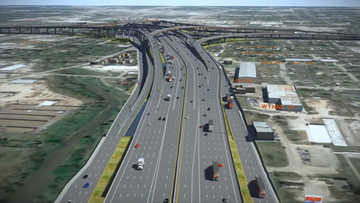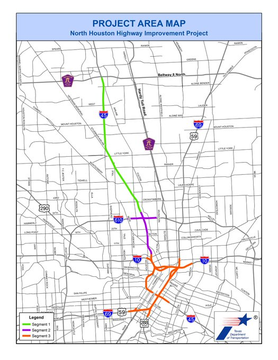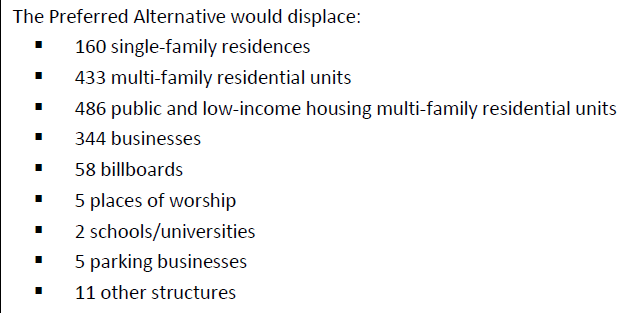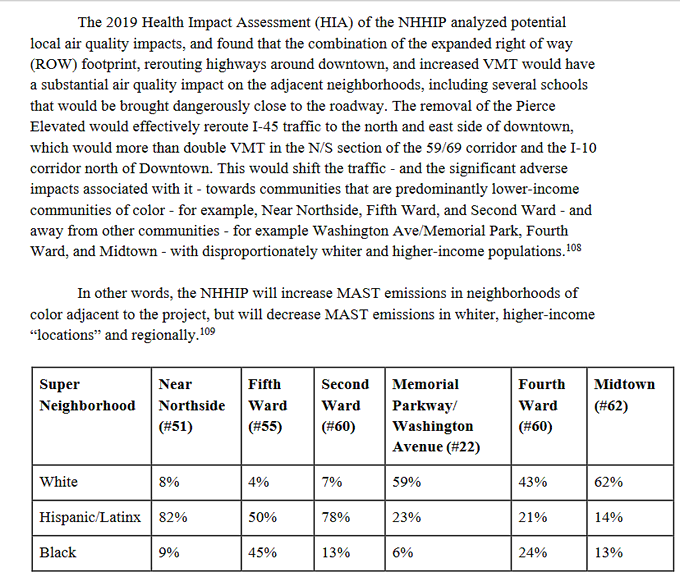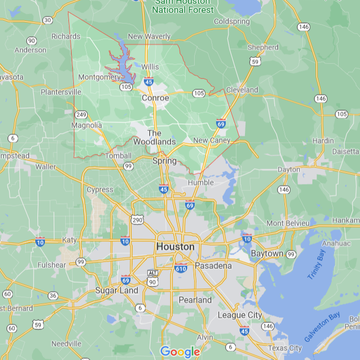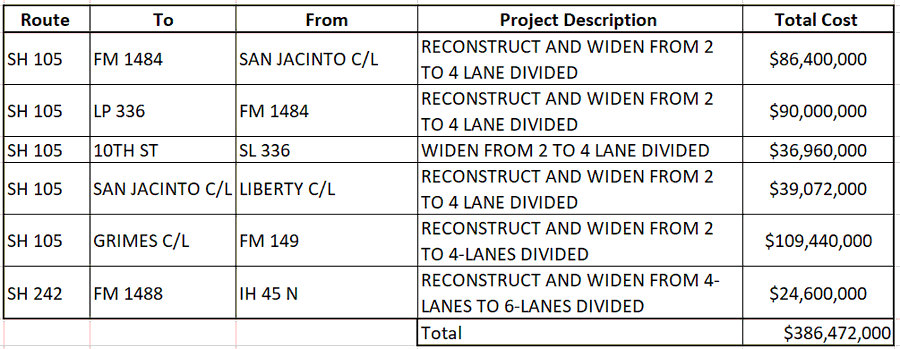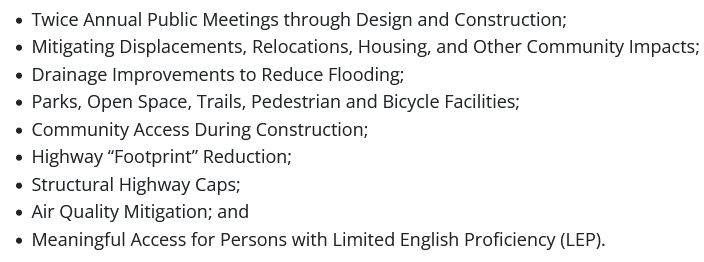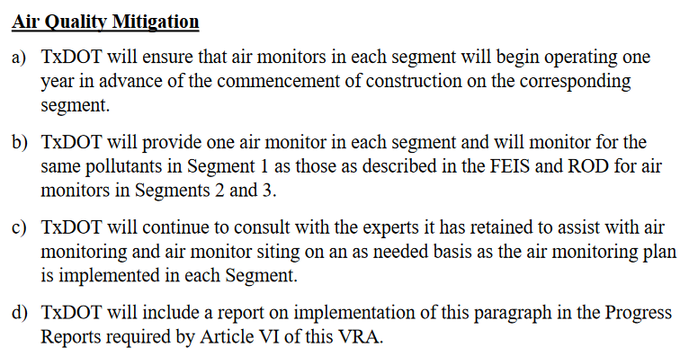Editor’s Note: For the past two year’s the Federal Highway Administration has been investigating a civil rights complaint brought against the proposed I-45 freeway expansion project in Houston. This week, FHWA and TxDOT signed an agreement to resolve this complaint.
Urban freeways have been engines of segregation and neighborhood destruction for decades, a fact that even highway builders are now acknowledging. You might think that civil rights laws might provide some protection against a repetition of the devastating consequences of such projects, but this case shows that federal and state highway builders aren’t about to make any serious changes to their plans to either right historical wrongs or avoid making them worse. Officials will give lip service to the egregiousness of past mistakes, but then blithely repeat them.
Kevin DeGood of the Center for American Progress has taken a close look at the agreement, and published his analysis as a series of tweets. His analysis deserves a wider audience, and with his permission, we’re repeating it here. The twitter original is available here.
1/ FHWA and TxDOT have signed a Voluntary Resolution Agreement (VRA), which allows TxDOT to build the massive $10 BILLION I-45 North Houston Highway Improvement Project (NHHIP). It’s not good. Let’s take a look.
2/ Numerous complaints against the NHHIP project argued the design violates Title VI of the Civil Rights Act of 1964. Why? Because the expansion will cause massive displacements — especially of low-income residents in communities of color:
3/ The disparate impacts from the NHHIP are not limited to affordable housing loss. The Air Alliance complaint states the project would degrade air quality in “predominantly lower-income communities of color…” (Note: MSATs are mobile source air toxics)
4/ I-45 will also supercharge sprawl. The transportation improvement program (TIP) for 2021-2024 shows how the exurban growth machine leverages highway expansions like I-45. This $386M for highway widening in Montgomery County is a small sample of the region total.
5/ This is FHWA’s quick summary of the Voluntary Resolution Agreement (VRA). Let’s dig in a little, starting with “Highway ‘Footprint’ Reduction.” Wow, that sounds promising. But what has TxDOT actually promised to do…?
6/ Short answer: Nothing. TxDOT has only committed to…”evaluating reasonable opportunities to reduce the project footprint…” but ONLY if they would “not compromise the integrity and functionality of the purpose and need…” Welp.
7/ Ok, what about “Mitigating displacements”? Since TxDOT isn’t reducing the project footprint, the displacement totals will not change. Instead, TxDOT will provide $30M for affordable housing. But TxDOT already agreed to $27M in the ROD [Record of Decision]! The $3M is an…11% increase.
8/ Ok, what about “Air Quality Mitigation“? TxDOT has agreed to install air quality monitors. Be still my heart. Billions of additional VMT producing emissions and PM 2.5 and residents will get a few monitors and some data buried on TxDOT’s website.
9/ Ok, what about “Structural Highway Caps“? Again, FHWA is bragging about something that TxDOT already agreed to. TxDOT is set to build 4 caps. But, it’s up to a third party to “fund the design, construction, operations and maintenance of amenities…” Piece of cake!
10/ The NHHIP will result in:
– More VMT, GHG emissions, & auto dependence
– Worse air quality
– Huge residential displacements
– Huge business displacements
– More sprawl
– More wetlands loss
The VRA has not meaningfully changed the project design or its negative impacts.

